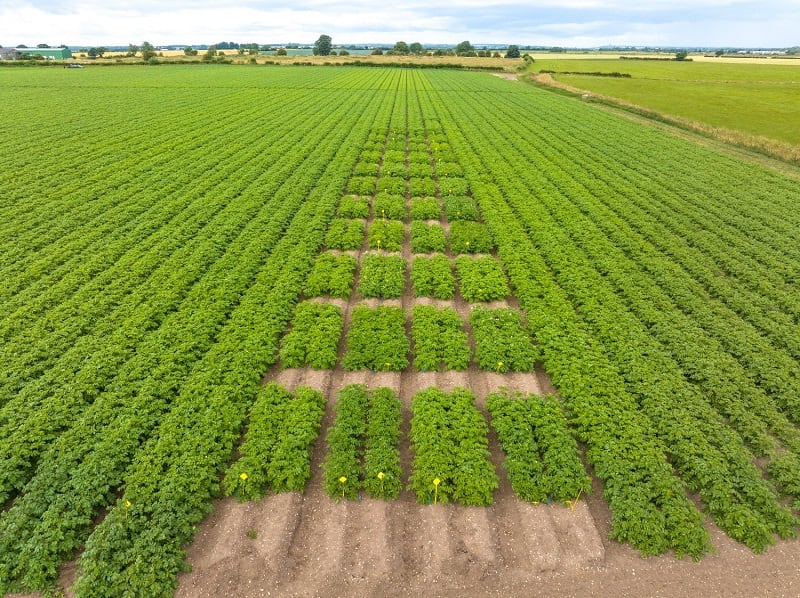Despite nearing targets such as Sustainable Development Goals in 2030, over 30% of business leaders across sectors say they will still rely on fossil fuels into the 2050s, even though many of these have established net-zero goals before this date, a new Corporate Climate Stocktake report (CCSR) relays.
More than 70% of businesses say government regulation is the most important influencer for accelerating the energy transition, prompting even more focus on COP28 and the tangible actions of leaders. COP28 will take place in December 2023, where policymakers will review the United Nations Global Stocktake established under the Paris Agreement, adopted in 2015.
At a time when the world’s eyes will be on the global event, We Mean Business Coalition and global consultancy company Bain & Company have released their CCSR report, which aims to show how business is driving forward climate action, the barriers they face and what they need from governments to implement change faster.
Global emissions from the food system, currently around 25-35% of the total, are set to rise, driven by a growing global population and increasing wealth leading to more emissions-intensive diets, the CCSR 2023 finds. “We are at the foothills of the transition to sustainable agriculture,” Katherine Dixon, Expert Partner at Bain & Company, told FoodNavigator. Action is urgently required to stop the further detrimental impact of climate change.
Making meaningful corporate agricultural climate efforts
Today, the overall state of the agricultural landscape sees many large agri-food organisations “setting ambitious goals, including commitments to stop deforestation and reduce emissions from agricultural production”, says Dixon. Some organisations are beginning to implement ambitious programmes in supply chains concerning corporate climate efforts.
Signs indicate the adoption of regenerative agriculture is taking off in some markets, Dixon says, along with growing efforts to reduce livestock emissions from leading players, which will help reduce emissions and increase farm resilience.
“Scaling these practices requires significant upfront costs and risks yield drag in the short-term as farmers implement new techniques, while long-term gains can be unpredictable, creating risks for farmers,” Dixon notes. For businesses further up the supply chain, their concerns are that farmers are not getting the access to funding and technical support they need to scale regenerative agricultural practices.
The report’s findings on the agriculture sector indicate how some currently adopted business models make the transition to net-zero products and services a considerable obstacle. While peak deforestation may be in the past, the report asserts that demand and prices for beef, palm oil, and soy are still rising, signalling powerful economic drivers for land use change.
However, more awareness efforts and education are needed. The business case remains difficult without more significant incentives for landowners and farmers to preserve or reforest lands. “Many farmers lack either the know-how or economic incentives to act,” says Dixon. Deforestation, for example, is particularly challenging, as “underlying incentives are going in the opposite direction”.
Minimising agricultural resources
“It’s possible that voluntary and regulatory measures which focus on driving greater scrutiny on supply chains may simply result in resource shuffling,” the report states regarding lowering resources.
European Union (EU) regulation and voluntary initiatives like Science-based Targets (SBTI) are putting pressure on companies to raise supply chain standards, including ensuring they are not contributing to deforestation. “Given the criticality of land-use change in the overall climate picture, this is rightly up there as one of the most important global issues we should be focusing on,” Dixon asserts.
However, some agricultural industry concerns revolve around the piecemeal efforts on the demand side, which may have a limited global impact. The reason for this, Dixon says, is “given the strong underlying incentives and potential for commodity exports from higher risk jurisdictions or smaller producers to simply be exported to other markets”.
While supply chain approaches are valuable, “they can only achieve so much”, Dixon says, particularly in a world where demand and prices for the underlying commodities are rising. Value chains are often long and opaque. “Tackling deforestation requires addressing the underlying economic dynamics,” Dixon adds.
Crop and livestock emissions handling
“There are few quick-fix solutions in the area of livestock and crop emissions,” Dixon says. Beef and dairy consumption continues growing steadily, primarily driven by increased demand in developing markets. Rising prices and lack of price elasticity create strong incentives for further supply growth.
On farms, the primary emission sources are enteric fermentation and manure management. Solutions exist for reducing emissions, including feed additives and anaerobic digesters. “But cost and other barriers are holding back widespread adoption,” says Dixon.
With crops, regenerative agriculture can remove carbon from the atmosphere while benefiting farmers by increasing soil fertility and quality, controlling weeds and pests, and improving yield resilience. “While these practices can increase yields, resilience, and cash flows, bearing the economic risk for upfront financing, near-term losses, higher variable costs, and less-certain long-term upside presents a substantial barrier to adoption,” shares Dixon.
Fostering better international handling
“The solutions for agriculture are complex, but tackling deforestation needs to be thought about at the global level,” says Dixon. It requires addressing the underlying economic dynamics. Supply chain approaches are, therefore, valuable yet can only achieve so much.
Collaboration is a strong option for improving corporate climate efforts. Better international coordination could help ensure more sustainable demand for the underlying commodities driving land-use change and provide new mechanisms for improving financial incentives for landowners while increasing shared learning on successful jurisdictional approaches.
The role of new technologies
Technologies are available today that could be more widely deployed across all of the globe’s agricultural issues—such as satellite imaging and polygon mapping in support of zero deforestation production, low-carbon hydrogen production in synthetic fertilisers, and anaerobic digesters, which convert methane emissions to biogas.
Deploying technologies in these areas can also create valuable revenue streams for farmers, generate energy, and reduce emissions. “Farmers and producers need more support to invest and deploy new practices and technologies,” says Dixon.
In other cases, the landscape requires further research and development (R&D). Feed additives like the anti-methanogenic 3-NOP (3-nitrooxypropanol) show a lot of promise and can potentially reduce methane by up to 40%, Dixon states.
Red seaweed, anti-methanogen vaccines, wearables, and selective breeding are emerging solutions to reduce enteric fermentation. “However, the technology is still in its early stages, with viability at scale still unproven and costs prohibitively high with limited efficiency benefits”, adds Dixon.
“In livestock and arable farming, a paradigm shift is also needed to bring new technologies to market that enable productivity, decarbonisation, and measures which will accelerate access to training and technical assistance on regenerative agriculture,” Dixon adds. Some countries like the Netherlands, New Zealand, and Ireland are taking robust measures. “However, resistance from farmers and other sectors of society underscores the challenges of major reforms and underlines the importance of blending technical solutions with a just transition,” Dixon notes.
Impact on food manufacturers
The CCSR report’s findings indicate that “food manufacturers will need to get much more on the front foot in terms of supply chain management, given the direction of regulation”, Dixon says.
However, food manufacturers’ “biggest opportunity”, Dixon says, is to think beyond company boundaries and work collaboratively with the government to address the underlying causes of land-use change, lower the carbon intensity of diets, and support the widespread adoption of lower-carbon agriculture practices. “The paradigm shift needed is much more likely to be achieved through sector-level rather than enterprise-level action.”




